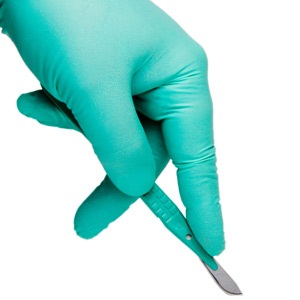
Most medical devices that have been recently approved for use in paediatrics weren't actually tested on kids first, according to a new study.
Almost all of the devices had only been tested on people age 18 and older, researchers found. "Children are not simply 'small adults,' and a device found to be safe and effective in adults may have a very different safety and effectiveness profile when used in a paediatric population," said Brigham and Women's Hospital and Harvard Medical School research fellow Thomas J. Hwang, one of the study's authors. "Without this data, it is difficult for clinicians and parents to make informed treatment decisions that weigh the risks and benefits of a particular treatment," he told Reuters Health in an email.
The new study examined what kind of testing has been done on medical devices meant for kids since an act of Congress incentivised their development seven years ago.
'Postmarket' trials
The researchers considered the 25 medical devices that were approved by the US Food and Drug Administration (FDA) for use in patients age 21 and under between 2008 and 2011. They looked at data from the main clinical trial that was used to get each device approved.
Read: FDA launches system to label medical devices
According to those data, 11 of the 25 devices were not tested on any patients age 21 and under. Only four of the devices had been tested on patients under age 18. Three of the devices included in the study were specifically approved for kids under 18; the rest were approved for 18- to 21-year-olds, whom the FDA devices centre considers paediatric. However, researchers said devices only approved for older adolescents are likely used "off-label" in younger children, as there typically aren't any alternatives.
Most of the devices had been approved with a stipulation that the device makers conduct postmarket trials once the product was being used commercially to make sure it was safe and effective.
Kids still growing
But only three required that kids be included in the trials, and none of those was actually complete, according to results published in Paediatrics. "Designing devices for children is more complex because they are still growing and may need to have the device for many decades, in contrast to older adults," said Dr Katherine Bates, a cardiology fellow at The Children's Hospital of Philadelphia.
Without testing the device in children, it's impossible to say how the device will perform long term, but it can be difficult to enroll children with rare diseases in clinical trials for both practical and ethical reasons.
What's more, the government provides incentives for drugmakers to run clinical trials with children, but not for device makers, Hwang noted."Overall, many of these devices were not only tested in limited paediatric populations, but many were also approved on the basis of clinical trials that did not employ a very rigorous trial design," said Dr Florence Bourgeois of Boston Children's Hospital, another author on the study. Some devices were approved on the basis of observational studies, instead of more rigorous randomised controlled trials.
Best and possibly only option
Most kids will never need these devices, which include stents and artificial heart valves. But sometimes they are the best and possibly only option, she told Reuters Health in an email.
The FDA requires at least one clinical trial that shows a device is safe and effective before approving it for use with patients. But the clinical trials don't necessarily have to include the same type of patients that will be getting the device in the real world. "Generally people in the clinical trials tend to be healthy middle-aged white men," Dr Rita F. Redberg said.
Redberg is the editor of JAMA Internal Medicine and a cardiologist at the University of California, San Francisco. She was not involved with the new study.
Devices tend to be understudied in women and the elderly, Redberg told Reuters Health. She was disappointed to see that the case is the same for children. "Common sense would dictate that devices would be studied in the appropriate populations before they are used on the market," she said.
There is an exemption from the approval requirements for "high-risk" devices that support or sustain life in patients with rare diseases, which affect fewer than 4 000 people in the US yearly: those devices only need to demonstrate safety and probable benefit. The catch is, devices that use that exemption can't be sold for profit.
Effective and safe
In 2007, an act of Congress eliminated that catch for devices intended for children, and also set up grants for nonprofit paediatric device developers.
Three of the 25 devices included in the current study utilised the rare disease exemption.
Read: Cyber attacks on medical devices a new threat
Parents should talk to their doctors about any devices recommended for their children, and ask about how much evidence there is that the device will be effective and is safe, Bates said."Perhaps most importantly, if given the opportunity, parents should give careful consideration to enrolling their child in trials," she said. "We cannot learn more about how these devices work in children without families who are willing to participate in clinical trials."
Read more:
Diacaustic medical devices and the JAG Foundation screen kids' heart
More than 70,000 kids injured by medical devices each year
Device warns of impending heart attack




 Publications
Publications
 Partners
Partners










